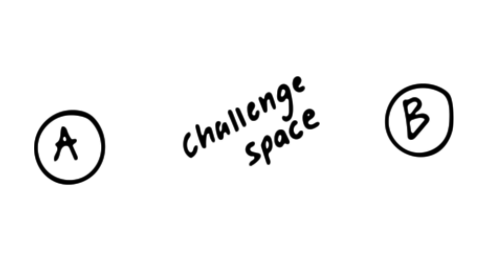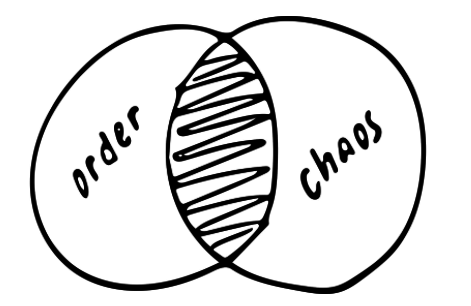Hyper Island program managers Sam and CR recently created a Facilitation and Process Design course for alumni. The course was run in Amsterdam a few months ago and they will be delivering it in Berlin this week - with the potential to take it much further afield. We thought this is a great opportunity to share some theory on Facilitation and Process Design.
Hyper Island program managers Sam and CR recently created a Facilitation and Process Design course for alumni. The course was run in Amsterdam a few months ago and they will be delivering it in Berlin this week – with the potential to take it much further afield. We thought this is a great opportunity to share some theory on Facilitation and Process Design.
“The original idea was to help alumni stay connected, while at the same time developing their competence further. We see this as a tool to support our network”, they explain.
The 2-day course will be experience-based, with some parts of it focusing on planning and other parts focusing more on action. Participants will get the opportunity to practice running workshops with each other while receiving supportive input from the fellow participants.
“There will be some theory, but more practice and feedback sessions”, Sam says.
An example of an outcome during the Amsterdam course, where participants were asked to co-create their most important advice when planning & leading processes.
How does the Theory of Facilitation and Process Design look?
According to Sam and CR, it’s based on the learning spiral and inspired by several practices and books. We’d like to give you an overview of some of them here:
- What’s Process Design? The planning, preparing and implementing of group experiences that are goal-oriented and collaborative.
- What’s Facilitation? The practice of leading groups through processes towards common goals in ways that encourage participation, ownership and creativity (David Sibbet).
This makes process design the planning-focused part, while facilitation is the in-action part.
Why do we need Process Design and Facilitation?
When we try to solve a problem, we naturally look for a clear path to get us from start to finish, an industrial-era heritage. However, we all have faced complex problems where finding a clear path from A to B is just not possible. This creates what we call a challenge space between A and B.

Image inspired by Gamestorming
In order do adapt our problem-solving processes to ambiguous goals, we need to develop skills in process design and facilitation.
…some basic principles for Process Design
The purpose should always be top of mind when we’re designing a process. What are our objectives? Returning to the objectives throughout our planning will help us take smaller decisions like how to structure activities or document our design.
The objective is usually connected to several questions. We need to make sure we know what these questions are. For example, if we’re trying to design a workshop about creating data security, core-questions could be “How can we ensure data security?”.
Most importantly, we need to ensure that our design gives enough structure to motivate participants and give direction, while not limiting their ideas.

…some basic principles for Facilitation
The core task of a facilitator is to support the goals of the group. A facilitator should navigate the process while ensuring that participants try to answer the core questions.
A facilitator needs to be clear about his or her role. Sometimes the facilitator may want to be inside the group, other times act as an outside guide. This needs to be transparent to all participants in order to avoid bias.
While facilitating, it’s important to stay mindful of one’s own biases and emotions. Only this way can we learn how to best serve a group to achieve an objective. We can ask ourselves questions such as “Will my action serve the purpose?” to ensure we stay on track.
Last but not least, facilitation can be challenging and you should be prepared to deal with questions such as:
- Lack of authority “You can’t facilitate me!”
- Unclear purpose/goal “What is this about?”
- Agenda Overload “We’re going to discuss all that?!”
- Mistaken Assumptions “Who told you that?”
- Hidden Agendas “We should be talking about the real issues.”
Find these and more resisting behaviors explained in Ingrid Bens’ Book “Advanced Facilitation Strategies”.
If you want to know more and have a look at some useful tools for Process Design and Facilitation, please have a look at our Hyper Island Toolbox


